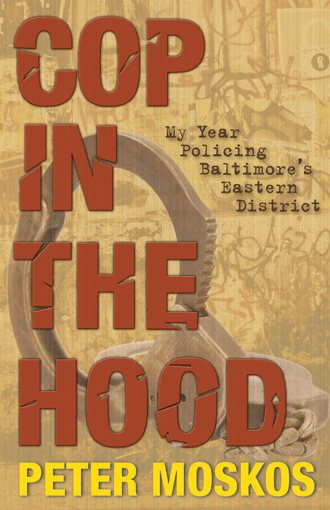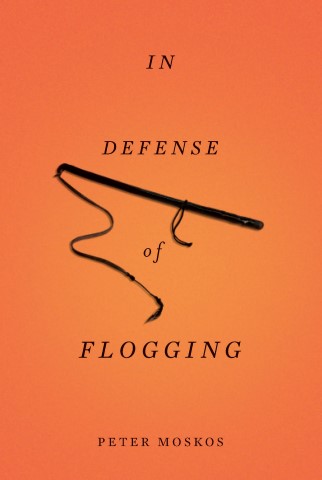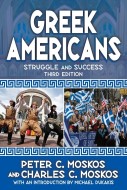The Great New York City Crime Drop: Told by cops who were on the job (Forthcoming)
Cop in the Hood (Princeton University Press)

• Winner of the 2008 PROSE Award for Best Book in Sociology.
• “Perhaps the best sociological account on what it means to police a modern ghetto.” —American Journal of Sociology
• “Hard-edged sociological analysis.” —Harvard University Professor Orlando Patterson
• “Leads to a rethinking of some important ideas in the sociology of deviance.” —Professor Howard Becker
• “The best recent study in the field of urban ethnography…. An exemplar for the field of sociology.” —Yale University Professor Elijah Anderson
• “Moving description of big city policing.” —Northeastern University Professor Peter K. Manning
• “Congratulations!!!” —MIT Professor John Van Maanen
• “A must read.” —Columbia University Professor Sudhir Venkatesh
• “Truly excellent.” —George Mason University Professor Tyler Cowen
• “A masterpiece of the participant observation genre.” —Princeton University Professor Mitchell Duneier
• “Never mind ‘The Wire.’ Here is the real thing.” —The Wall Street Journal
• “Riveting.” —The Atlantic
• “Engaging as well as persuasive.” —Baltimore Sun
• “An adrenaline-accelerating night ride.” —Publishers Weekly
• “Genuinely eye-opening.” —Times Higher Education
• “Should be made mandatory reading for every recruit in the Balto. City Police Academy. … I am so proud that you were a Baltimore Police Officer and a good one.” —Baltimore City Colonel (ret.) Margaret Patton.
In Defense of Flogging (Basic Books)

• You rascal, I thought. Moskos … knows how to catch our attention. —Clarence Page, Chicago Tribune
• Moskos presents us with a true dilemma…. He compels us to rethink our ideas…. It is invariably jarring to overcome a prejudice or abandon a dearly held belief—I try to avoid doing either—but Moskos makes it an intriguing, if unsettling, experience. —“The Ethicist” Randy Cohen
• Don’t laugh: He makes a convincing case…. Clear, smart and highly readable prose…. Let the debate begin. —Craig Seligman, Bloomberg
• Peter Moskos’ In Defense of Flogging might seem like a satire — akin to Jonathan Swift’s “A Modest Proposal,”… but it is as serious as a wooden stick lashing into a blood-splattered back. —Adam Cohen, Time.com
• Forces the reader to confront issues surrounding incarceration that most Americans would prefer not to think about. —Mansfield Frazier, The Daily Beast
• Moskos’s argument is unconventional and convincing. Those interested in prison reform will find much to contemplate here. —Library Journal
• A brilliant piece of work…. Witty, entertaining, and creative. —Professor Wendell Bell, Yale University
• “An elegant polemic.” —Maclean’s
• Moskos’s argument is moral, deeply felt, and deeply affecting…. There is a deeper, righteous anger here at that species of denial that allows for a population of 2.3 million Americans to be written off as disposable…. After reading Moskos’s necessary book, it is hard to view such ignorance, such denial, as anything less than ethically repugnant, a violation of our responsibilities as citizens. —Rain Taxi Review of Books
• [Moskos’s] provocative book makes many sanely provocative points; it is one I’ve urged on those who want to do more reading on the subject, and I’d urge it again now. —Adam Gopnik, New Yorker
• By the end… Moskos might just have you convinced. —Salon.com
• Read the first part of In Defense of Flogging for free.
Greek Americans: Struggle and Success (3rd edition) (Transaction Publishers, now Routledge)

• Who were the Greeks? How did they make their way in this new and strange world of America? How is it that they have achieved so much and still maintain strong ties with their heritage? It’s all here in this wonderful book. —Michael Dukakis
• This book enhanced my understanding of the Greek American experience. Moskos’s odyssey from migration to assimilation is a compelling one. The book is well researched. I recommend it.” —Nicholas Sofios, Contemporary Sociology
• The best modern history of the Greek immigrants and their progeny. Moskos gives us an incisive analysis of why Greek Americans have come so far so quickly. —Nicholas Gage, author, Eleni
• A comprehensive overview and personal assessment. —Eva E. Sandis, International Migration Review